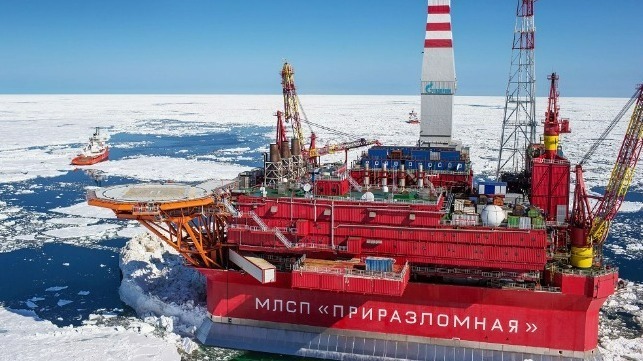OFAC Settles With Cameron Int'l for Russian Offshore Sanctions Breach

The U.S. Treasury has reached a settlement agreement with drilling equipment maker Cameron International over apparent violations of U.S. sanctions on Russia's Arctic offshore oil industry.
After Russia invaded and occupied Ukrainian Crimea in 2014, the Obama administration imposed stiff sanctions on certain sectors of the Russian energy economy. The measures forbid U.S. persons from selling goods, services or technology for use in Russian deepwater, Arctic offshore or shale projects. This swiftly shut down Russian oil companies' access to American drilling technology and forced the cancellation of at least one major joint venture, an Exxon-Rosneft partnership for exploration in the Kara Sea.
According to the Treasury's Office of Foreign Assets Control, one Houston-based oilfield supply firm did not comply with these restrictions. In 2015-16, a Romanian subsidiary of Cameron International Corporation reached a deal with the Russian oil company Gazprom-Neft to supply goods for the Prirazlomnaya offshore oil platform. Prirazlomnaya is the only operational offshore production project on the Russian Arctic continental shelf, making it uniquely susceptible to U.S. sanctions.
In late July 2015, Cameron Romania's staff reached out to executives at the company's Houston office to request approval for contracts with Gazprom-Neft Shelf, the operator of Prirazlomnaya. The approval process required the Romanian subsidiary to get sign-off from the home office for contracts above a certain value threshold. In response, senior managers at Cameron - who were U.S. persons, not foreign employees - approved the contracts. They also approved two pre-purchase forms for one contract, allowing Cameron Romania to begin work before the contract's final execution.
According to OFAC, the Cameron managers in Houston had reason to know the services they were providing were in support of Arctic offshore oil-producing projects at the time of the approvals. The requests from Cameron Romania included references to Gazprom-Neft Shelf's Prirazlomnaya platform and clearly stated that the Russian Arctic was the destination for the goods, OFAC said.
Cameron International had compliance policies in place to ensure that it adhered to sanctions measures, including a form for transactions involving Russia. However, that form did not indicate that there could be sanctions exposure if the U.S.-person managers in Houston signed off on the activites of Cameron's foreign subsidiaries, like Cameron Romania.
In total, four Cameron U.S.-person senior managers - a division president, two VPs of finance, and one senior manager - approved the contracts and pre-purchase forms. Schlumberger acquired Cameron in April 2016, after two of the contracts were approved, and three more were approved after the acquisition. Later, Schlumberger discovered the apparent violation and self-reported it to OFAC. "OFAC assessed, however, that Cameron's submissions did not constitute a voluntary self-disclosure," the office said in a statement.

that matters most
Get the latest maritime news delivered to your inbox daily.
In total, Cameron Romania made 111 shipments of E&P equipment to Gazprom-Neft Shelf for use at Prirazlomnaya, helping the facility achieve its current production of about seven million barrels of oil per year.
The maximum possible penalty for the sanctions breach was about $22 million. After weighing the severity of the infraction, OFAC decided to settle with Schlumberger for $1,400,000, the minimum civil penalty amount.
